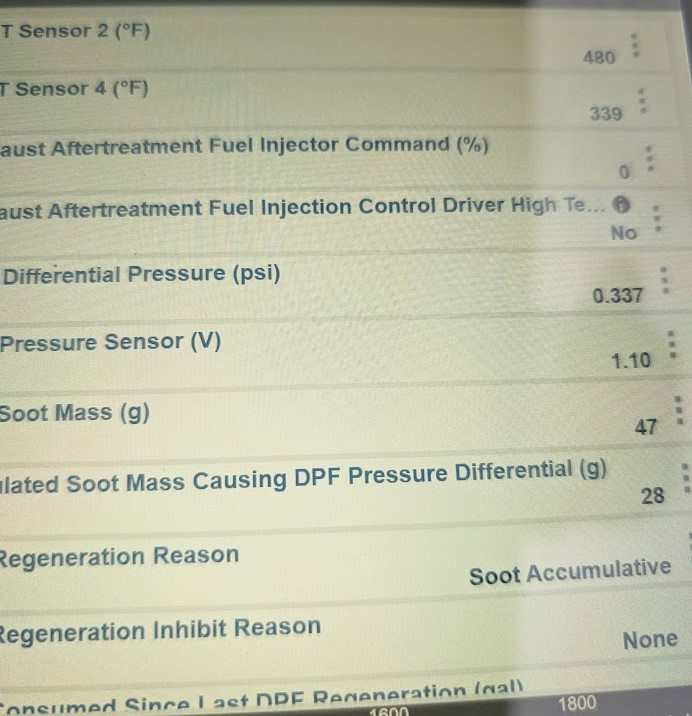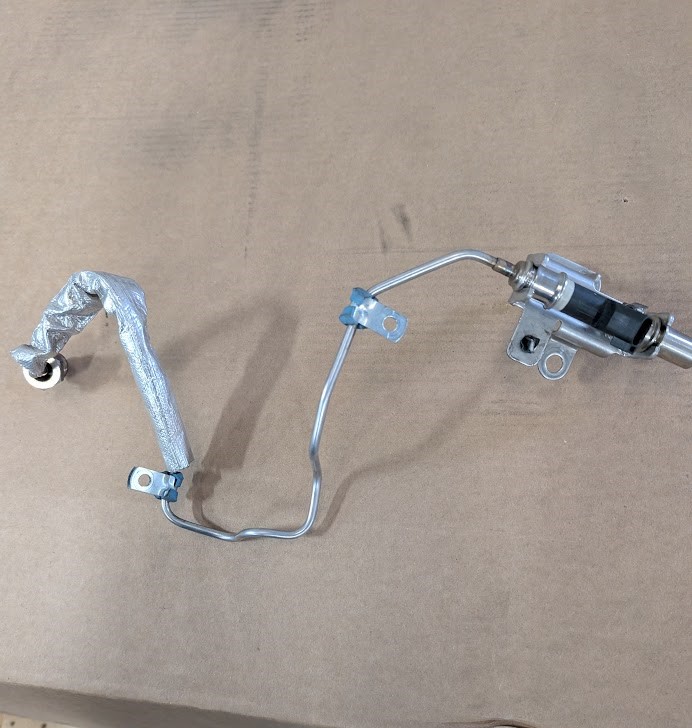Why "Free Diagnostics" Can Cost You More

When your vehicle's check engine light comes on, the offer of a "free diagnostic" can seem like the perfect solution. It feels like a risk-free way to find out what’s wrong. But as we see often, a quick, free code reading can sometimes lead to expensive and unnecessary repairs. Here at Rocha's Automotive, we believe in a thorough, expert-led diagnostic process. It’s an investment that can save you significant time, money, and stress down the road.
Let's look at a real-world example of a 2014 Chevrolet Silverado with a 6.6L Duramax engine that recently came into our shop. This story highlights the difference between a simple code reading and a true diagnostic investigation.
The Problem: A Misleading Trouble Code
A customer brought their Silverado to us for a second opinion. They had taken it to another shop that offered a free diagnostic check and were told they needed a new, and very expensive, oxidation catalyst. The basis for this recommendation was a single trouble code: P0420, which points to catalyst inefficiency.
For many gasoline vehicles, this code often does mean a failing catalytic converter. However, the 6.6L Duramax diesel engine is a different kind of machine. It doesn't use oxygen sensors to monitor the catalyst's performance like a gas engine does. Instead, it relies on a series of four exhaust gas temperature (EGT) sensors to determine if the aftertreatment system is working correctly. This is a critical detail that requires specific knowledge of diesel systems to diagnose properly. A simple code pull doesn't tell the whole story.
Our Diagnostic Process: Digging Deeper
When the Silverado arrived at Rocha's Automotive, we started our comprehensive diagnostic process. We value transparency and want you to understand what's happening with your vehicle every step of the way.
Step 1: Confirming the Fault
Our first step was to perform a full prescan of the vehicle's computer systems. Our advanced scan tools confirmed the P0420 catalyst inefficiency code was present. This code gave us a starting point, directing our attention to the exhaust aftertreatment system. It’s important to remember that a trouble code is a symptom, not the final diagnosis. It tells us where to look, but not what is broken.
Step 2: Analyzing the Data
With our scan tool connected, we looked at the live data from the engine's computer. We immediately noticed that the diesel particulate filter (DPF) had a soot load of 47 grams. This is an extremely high level of soot, well beyond the normal threshold. This finding told us the system was not cleaning itself effectively.
Step 3: Testing the System
The next logical step was to command a "service regeneration," which is a process where the truck's system is manually triggered to burn off the excess soot in the DPF. We initiated the regen, but it failed. While monitoring the EGT sensors during the attempt, we saw that the exhaust was not reaching the high temperatures needed for a successful regeneration. This was a major clue. The system wasn't getting hot enough because something was preventing it from doing its job.
Step 4: Pinpointing the Real Cause
Our experience and training with Duramax diesel systems led us to suspect the hydrocarbon injector, also known as the 9th injector. This component is responsible for spraying a fine mist of diesel fuel into the exhaust stream to raise the temperature for regeneration.
We removed the injector for a physical inspection. The problem was immediately clear. The nozzle was heavily caked with carbon buildup, and the spray pattern was poor. Instead of a fine mist, it was delivering an inconsistent stream of fuel, which couldn't ignite properly to generate the required heat.

The Right Solution for Your Diesel
The actual cause of the P0420 code was not a failed oxidation catalyst. It was a clogged hydrocarbon injector that prevented the entire aftertreatment system from working as designed.
We replaced the faulty injector, a much less expensive part than the catalyst. After installation, we initiated another service regeneration. This time, the EGTs climbed to the correct temperature, the process completed successfully, and the system passed all its self-tests. We cleared the P0420 code, and it did not return.
The customer drove away with their truck running perfectly, having saved thousands of dollars and the headache of replacing a part that wasn't broken.
Trust Your Vehicle to the Experts
This Silverado is a perfect example of why our approach matters. A free diagnostic from another shop identified a symptom (the P0420 code) and jumped to an expensive and incorrect conclusion. It took our team's specialized training, hands-on experience with diesel engines, and the right diagnostic tools to trace the symptom back to its root cause.
At Rocha's Automotive, we are your trusted diesel partner in the Eel River Valley. We know that a thorough diagnostic takes time and expertise, but it's the only way to ensure we fix your vehicle correctly the first time. Investing in a proper diagnosis from a team you can rely on is the best way to keep your diesel running smoothly and save on unnecessary maintenance costs in the long run.
If your check engine light is on, give us a call. We'd be happy to put our expert team to work for you and provide the reliable, comprehensive service your vehicle deserves.